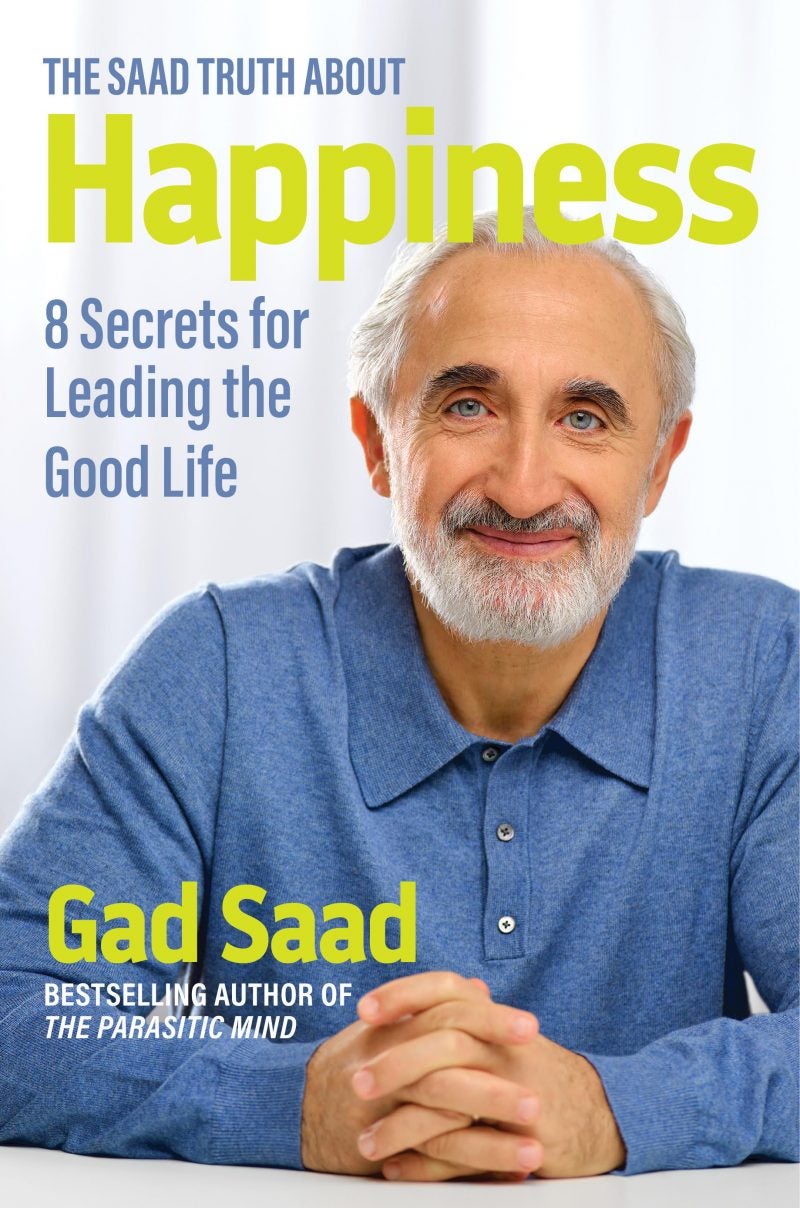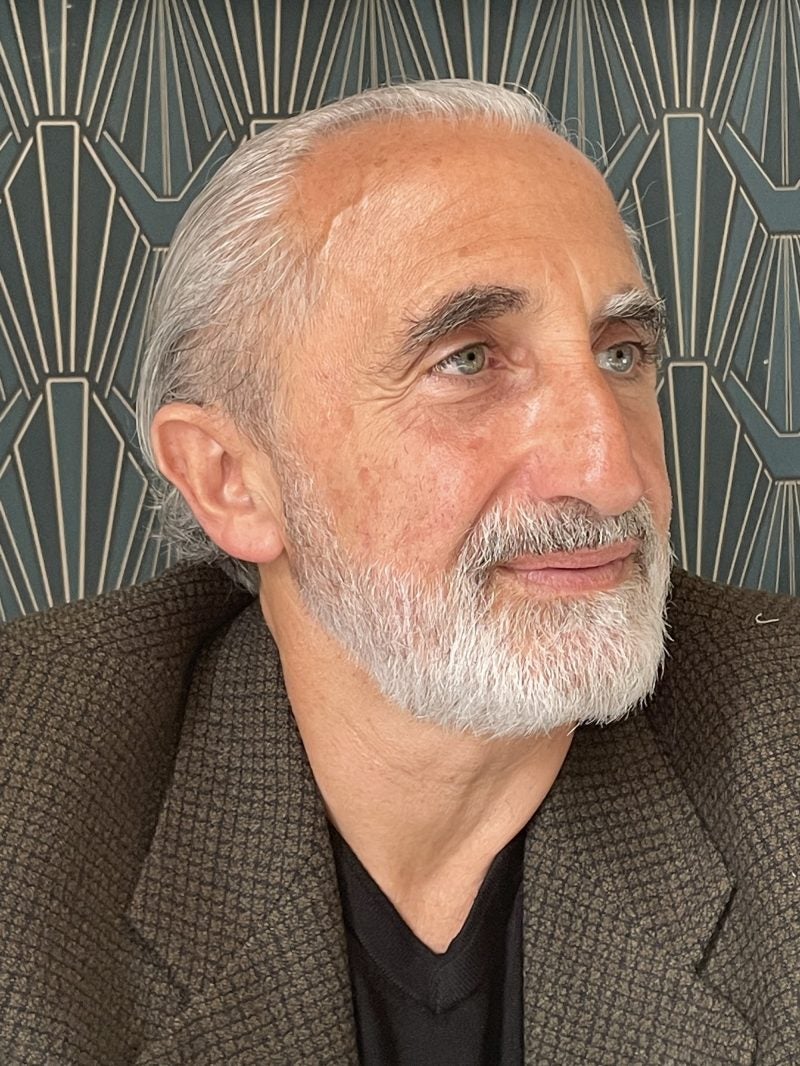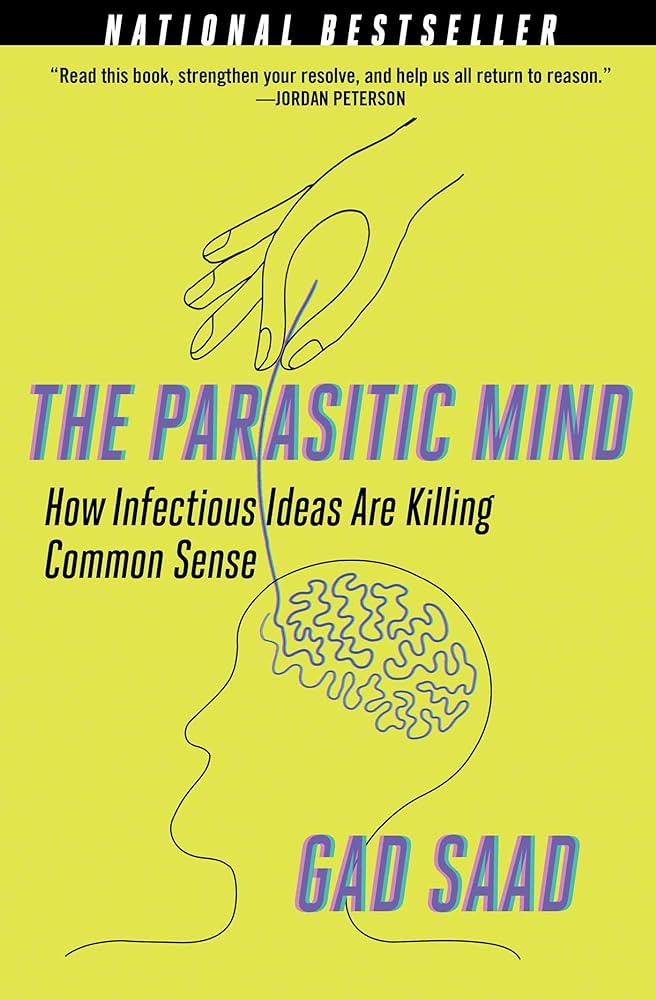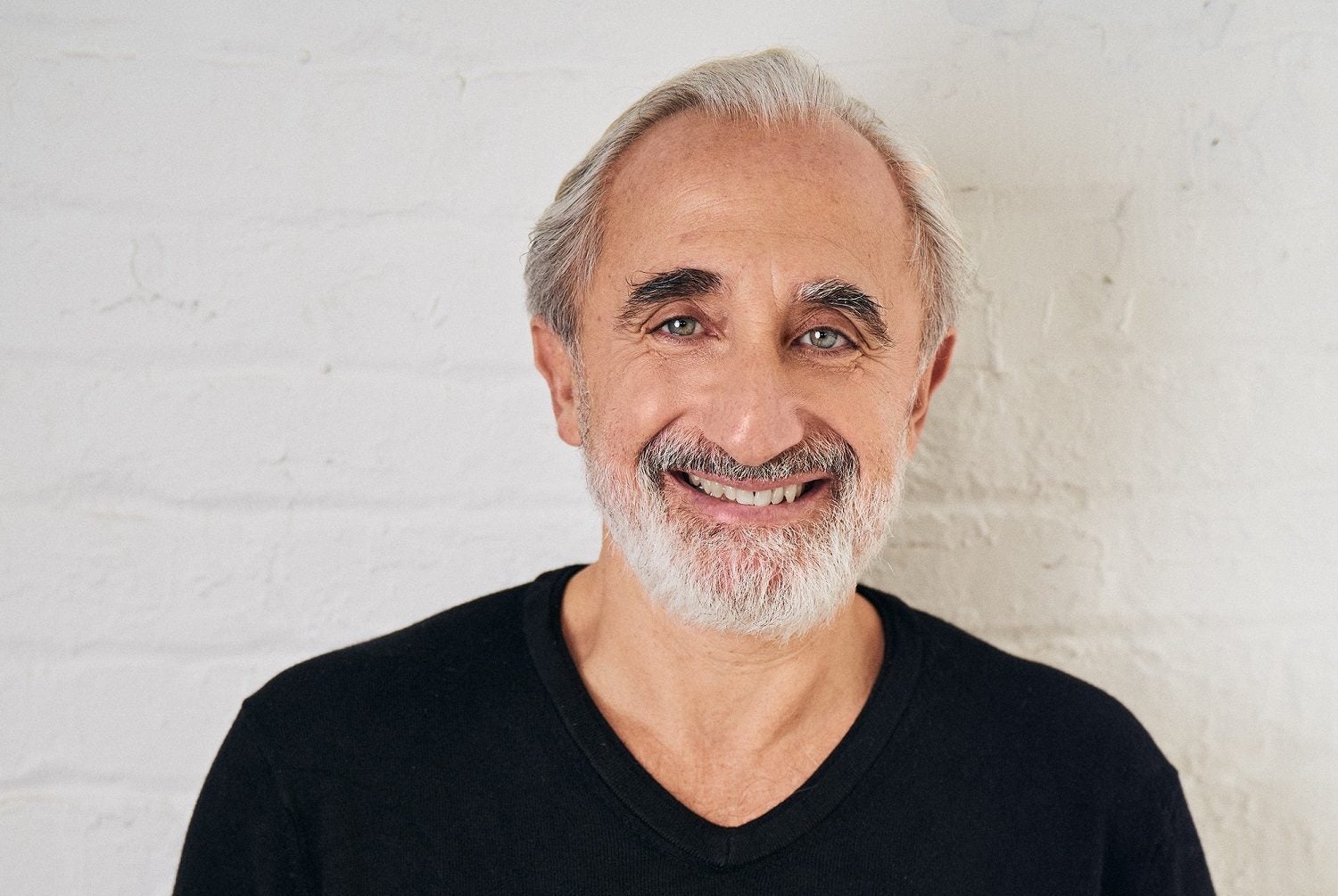Hero Image Credit: YvensB Photography
It had to be, that a man with the name Saad, wrote a book about happiness.
Gad Saad has explored the pursuit of happiness in his most recent book “The Saad Truth about Happiness: 8 Secrets for Leading the Good Life.” In this work, he combines insights from evolutionary psychology with practical advice, offering readers a road map to achieving fulfillment and well-being.

Saad, a prominent author, professor, and commentator, has for thirty years been a professor of marketing at the John Molson School of Business at Concordia University in Montreal.
Saad’s influence extends beyond academia, into the realm of public discourse. He is known for his candid views on political correctness, free speech, and world events, which he explores on his popular YouTube channel and podcast, “The Saad Truth.” His incisive, satirical, and often provocative commentary has garnered one million followers on social media channels, helping establish him as a key figure in contemporary cultural and intellectual debates. He has appeared countless times as a guest on major media, including a tenth appearance on the Joe Rogan Experience, last month.
Among his notable works, Saad’s bestselling book “The Parasitic Mind: How Infectious Ideas Are Killing Common Sense” discusses the detrimental impact of “idea pathogens”—harmful beliefs and ideologies that undermine rational thinking.
Other published works include “The Consuming Instinct: What Juicy Burgers, Ferraris, Pornography, and Gift Giving Reveal About Human Nature” and “The Evolutionary Bases of Consumption.”
A sought-after speaker, Saad has delivered talks at numerous conferences, universities, and public events worldwide, his latest in Toronto in June.

What led you to write a book about happiness?
It actually was a serendipitous project in that, if you would have asked me, when Parasitic Mind came out, what would be my next book project, a happiness book would certainly not have been on my radar. But what led to it is two things really. Number one, I would receive countless emails and messages from people saying, “how do you maintain your humor and your satire and your playfulness, when dealing with such serious topics? What’s your secret?” and “How do you stay happy?” I became known colloquially as the Happy Warrior. Just people constantly asking me what’s my secret to happiness.
Number two, I noticed something whenever I would post something on social media that was prescriptive in nature. I’m offering some life advice, such as assume personal responsibility, focus on your goals, or the discipline that was required of me to lose so much weight. People would write to me and say, “My God, you’ve changed my life! I’ve lost 35 pounds, because I listened to you talking about your weight loss journey.” And so I thought of writing that book. Now, the difficulty is, of all topics that philosophers have written about, probably none has been as frequently addressed as how to live the good life. Can I really come up with something that is unique, fresh, that is insightful? And so I would take my personal trajectory of happiness, that’s specific to me, coupled it with ancient wisdom, and backed it up by contemporary science.
What would be a practical tip for someone to increase happiness?
So I argue that there are two decisions that in terms of bang for your buck, are most likely to either impart great happiness, or if you choose unwisely, great misery. Choosing the right spouse, and choosing the right profession.
And the reason is very simple. Because if you break up your day, you wake up next to someone, and if that person that you wake up next to, you think, “Oh, God, I feel so happy that I’m waking up next to this lovely person!” Now you head off to some job that fills you with glee, you’re excited, and think, “oh, my God, there’s so many great opportunities awaiting me today!”
Well, that’s great. And then after you return from that job, you returned to that person that you woke up next to, and you’ll be excitedly resuming your evening next to that person. You’ve cracked the code.
Now, of course, the devil’s in the detail. How do you go about actually maximizing the probability that you make those correct choices? There are two opposing maxims in evolutionary psychology. So one is the birds of a feather flock together. And the other one, is opposites attract. When it comes to the likelihood of you having a happy long term union, or long term marriage, then it’s overwhelmingly the case that the research shows that it’s birds of a feather flock together. Which flocking and on which feathers? You share similar values, similar mindsets, similar life goals, similar foundational belief systems. So if you’re an atheist and your spouse is a religious person, you’re not off to a good start.
When it comes to a happy profession, I argue that there are two fundamental things that you can try to achieve via your choice. Number one, anything that allows you to satiate your creativity impulse. Something that allows you to create, is inherently going to give you purpose, and meaning.
So you can be a chef, I could be a stand up comic, I could be an author, I could be an architect. There are many ways by which I can immerse myself in my creative impulse in very different domains. That gives me a great sense of purpose. Because until I came along, that dish didn’t exist, that bridge didn’t exist, that book didn’t exist, that stand up comedy routine didn’t exist. And there is great sense of satisfaction of being able to create something from nothing.
And the other thing I would say that could bring you great occupational happiness, is something that affords you as much temporal freedom as possible, as opposed to a regimented job.

The subtitle in Parasitic Mind is “How Infectious Ideas Are Killing Common Sense.” If you could go back in time, what would you change to tip common sense in our favor?
Wow, what a great question. So probably, I would say that in Parasitic Mind, I discuss how human beings can be parasitized by ideological brain worms, right? Parasitic ideas are what I call idea pathogens. Now I list a whole bunch of things in the book, I explained how they came to be, and offer a mind vaccine against them. But to your question, the worst of all of these idea pathogens is post-modernism, because post-modernism purports that there are no universal truths, there is no objective truths. There are no moral absolutes.
Now apply this to art. What if there is absolutely no sense of universal aesthetics that we can all agree, where this type of painting is more beautiful than that type of painting or music? You know, structured music that follows certain mathematical properties that renders them beautiful to the ear. There is no such thing. So if you just start slamming like a monkey on a piano, and call it improvisational jazz, well, then that’s just as “beautiful.”
Post-modernism is what I call “intellectual terrorism,” because it says, “no, no, there is no such thing as shared reality, there is no shared meaning. There is no absolute truth.” And it is that framework that then allows all of the attacks on common sense to take place. So if I were to go back in time, the holy trinity of French post modernist bullshitters – Jacques Derrida, Michel Foucault, and Jacques Lacan – you know, maybe I would try to convince them to not expose this nonsense. So not to poison the minds of millions of university students.
What is the new book in the works, Suicidal Empathy about?
It is an exploration of empathy when it misfires, and it can misfire many ways. It can misfire by targeting the wrong target, it can misfire by being hyperactive when it shouldn’t be. And so for all sorts of reasons, the otherwise adaptive emotion of empathy can backfire.
On a political level, the policy could be domestic, like how do we deal with criminals domestically? Or it could be at the border, as in how tight our borders should be? Do people have a right to come here and just live the American dream, even if they crash the gates? It could apply to foreign policy. And so the goal will be to demonstrate how the emotion misfires, and results in disastrous, individual, societal, and global consequences.
Seems there is much confusion these days with what constitutes masculinity and manliness? What do you think?
You have these Women’s Studies bullshitters that call it toxic masculinity. The reality is, what they’re doing is actually an incredibly dangerous thing, pathologizing half of humanity.
Of course, violence is bad. Of course, rape is bad. Of course, war is bad. But being a hero, jumping into a river to save someone; running into a burning building to save someone – it’s not a manifestation of toxic masculinity. It’s just plain masculinity.
Being masculine is a multifaceted construct, some of which is gentle, kind, and soft, and sweet. While some of it is being unforgiving, being a growling honeybadger. So the way that I love my children when I would tuck them in, versus if I was accosted aggressively in an alleyway.
Being masculine involves chivalry and gentlemanliness, but I also might need to be violent to protect my loved ones, and that’s also not toxic masculinity. That’s called being a man.
This transcript was edited for brevity.

















